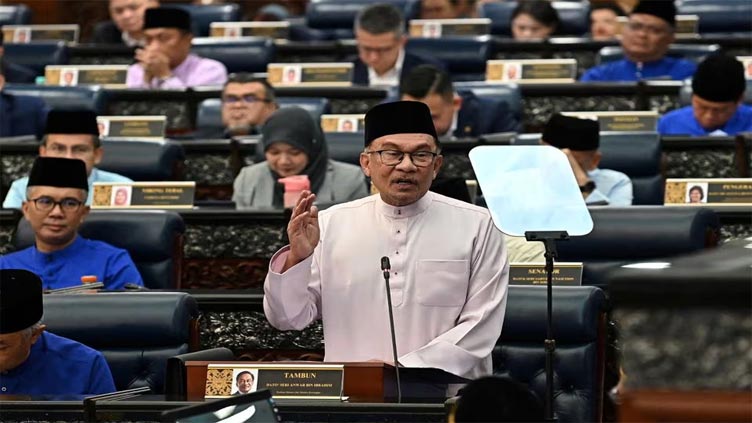Malaysia PM makes multiple changes in cabinet reshuffle

World
Prime Minister Anwar Ibrahim has seen a dip in public opinion polls in recent months
KUALA LUMPUR (Reuters) - Malaysian Prime Minister Anwar Ibrahim reshuffled his cabinet on Tuesday with multiple changes, including to the foreign, defence and energy portfolios and the return of a second finance minister, as he looks to rebuild trust after a year in office.
Anwar has seen a dip in public opinion polls in recent months, amid concerns over the economy and inflation, as well as a slow pace in promised reforms.
Announcing a reshuffle that saw the creation of several new posts, Anwar said the economy, health and education were the utmost priority for his government.
Among more than two-dozen changes, Anwar named a new commodities minister and shifted the incumbent Fadillah Yusof, the deputy prime minister, to a newly-created energy transition and public utilities portfolio.
He also moved Mohamad Hasan, deputy president of the United Malay National Organisation (UMNO) party, from defence minister to foreign minister.
Anwar, who is also finance minister, brought back the position of a second finance minister, which went to Amir Hamzah Azizan, the executive of Malaysia's largest pension fund.
"The ministry of finance, other than being headed by me, must have a strong professional team to ensure we are on the right track and the focus on the economy," Anwar told a televised press conference.
Anwar leads a government consisting of his progressive coalition, one-time rival UMNO, East Malaysian parties, and a number of smaller parties.
The latest survey by independent polling group Merdeka Center published last month saw Anwar's approval rating drop to 50% from 68% in December last year, while approval of the government dipped to 41% from 54%.
Sentiment was largely driven by concerns over the economy, the Merdeka Center said. Malaysia's economic growth has slowed sharply this year from 8.7% in 2022 amid lower exports.
Inflation has also moderated, though concerns remain over rising consumer costs due to the weakened ringgit, one of Asia's worst performing currencies this year.


